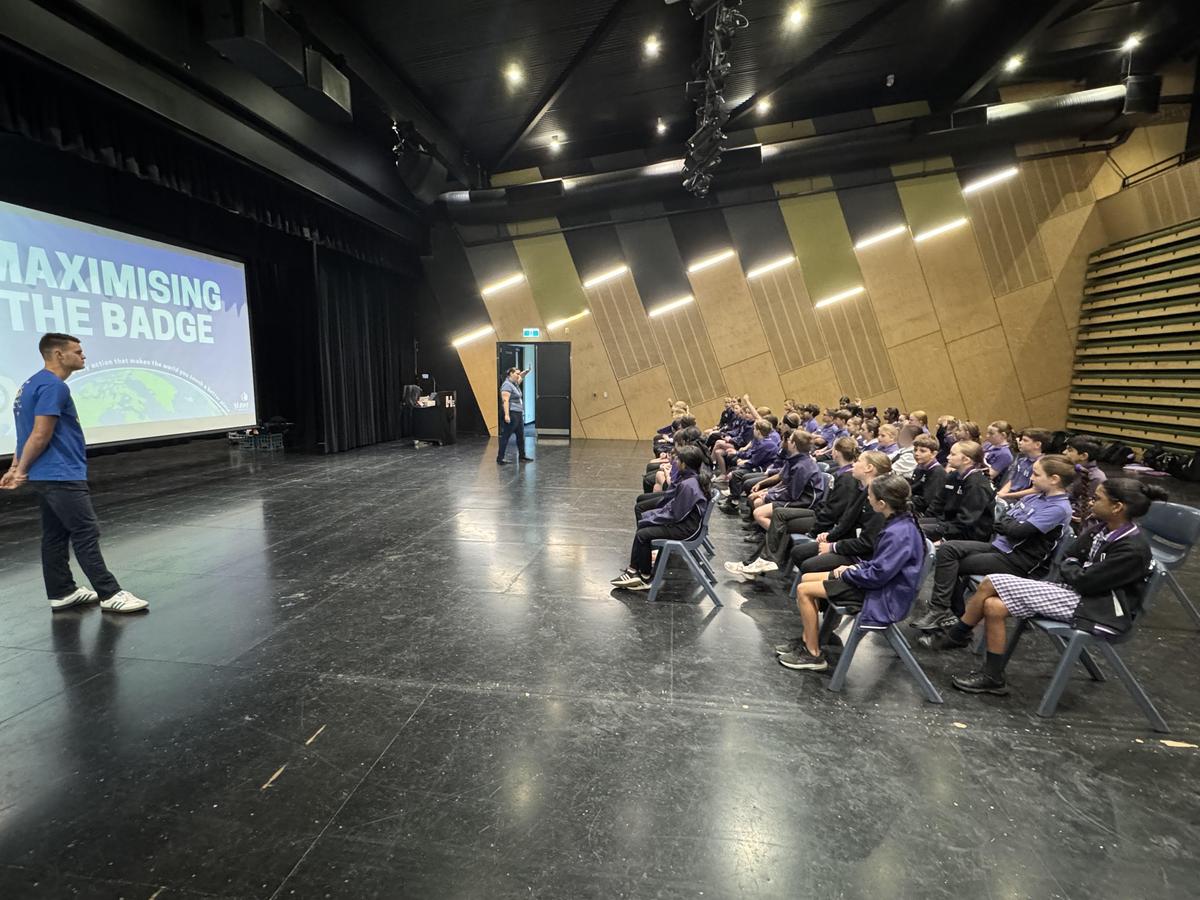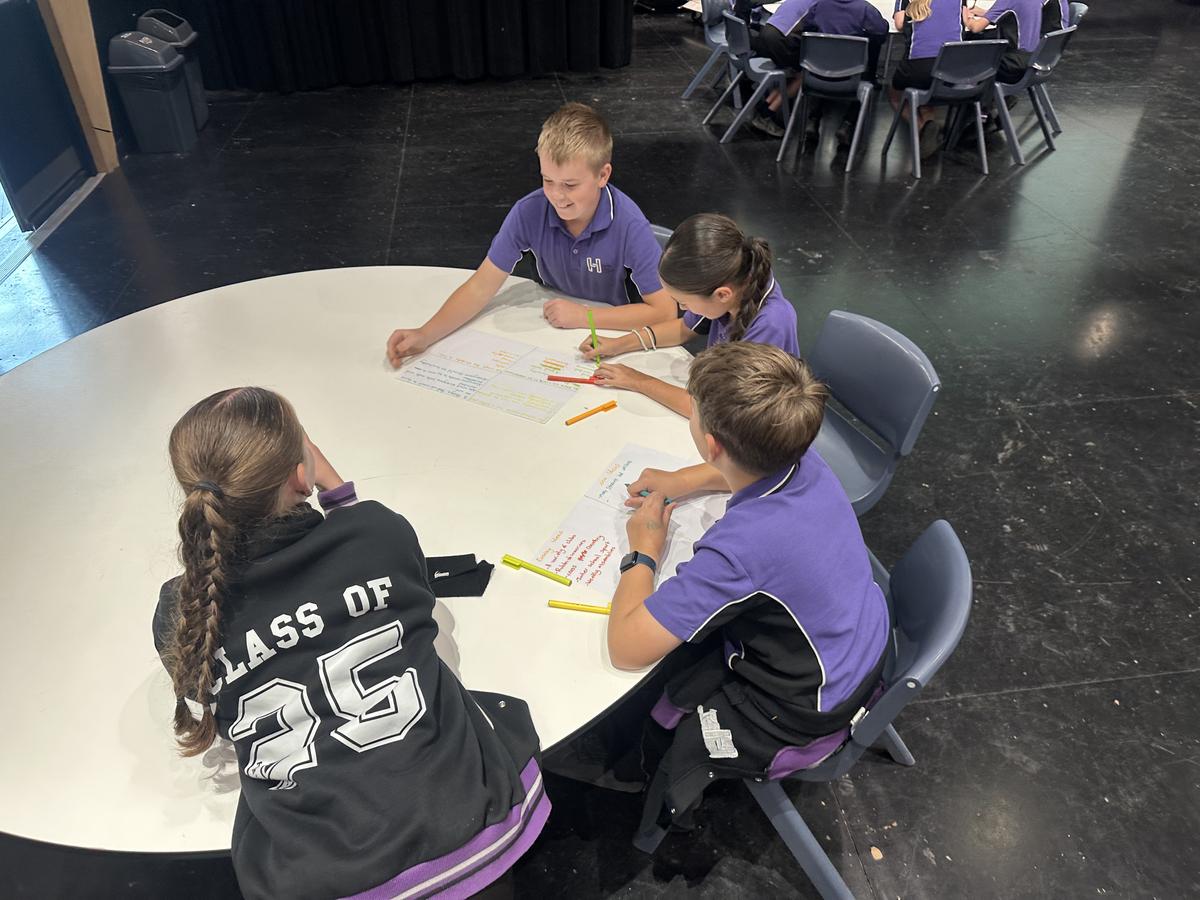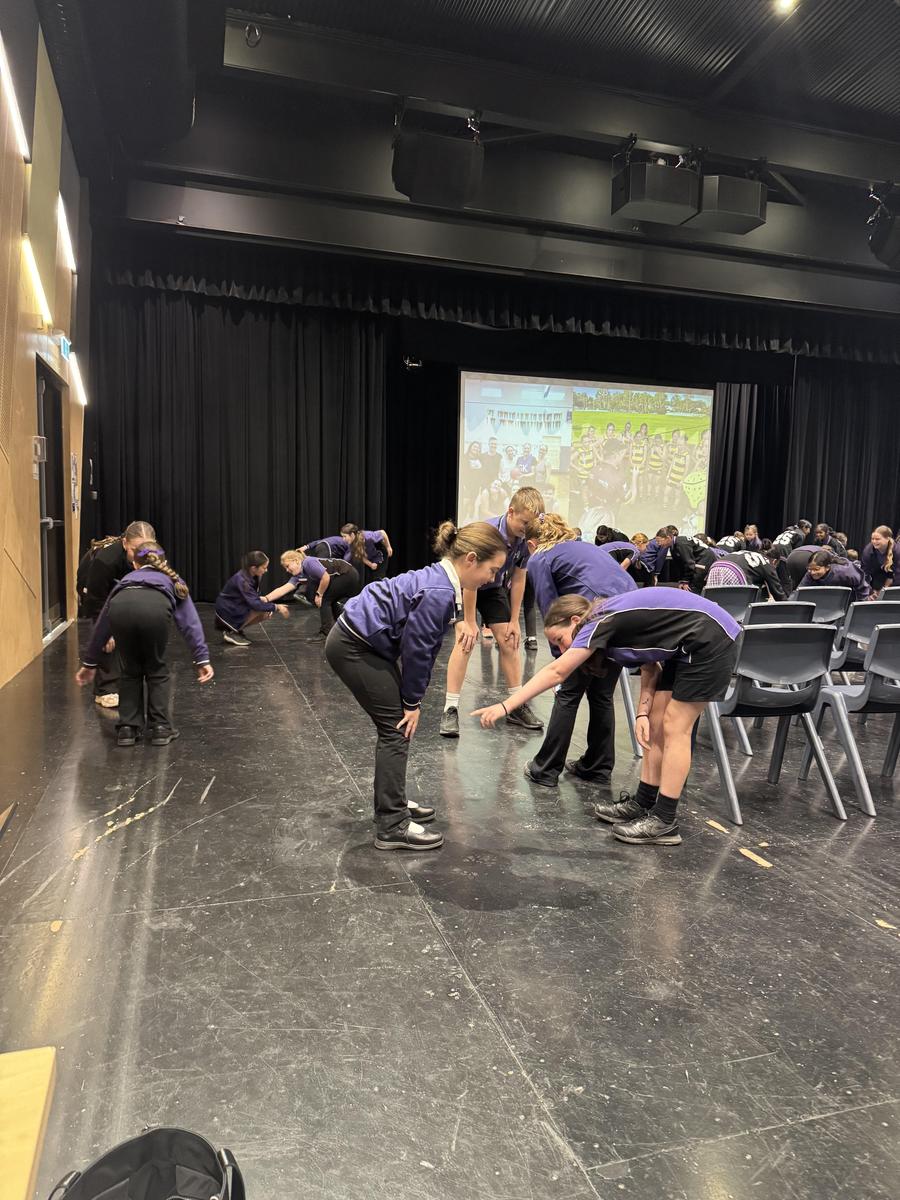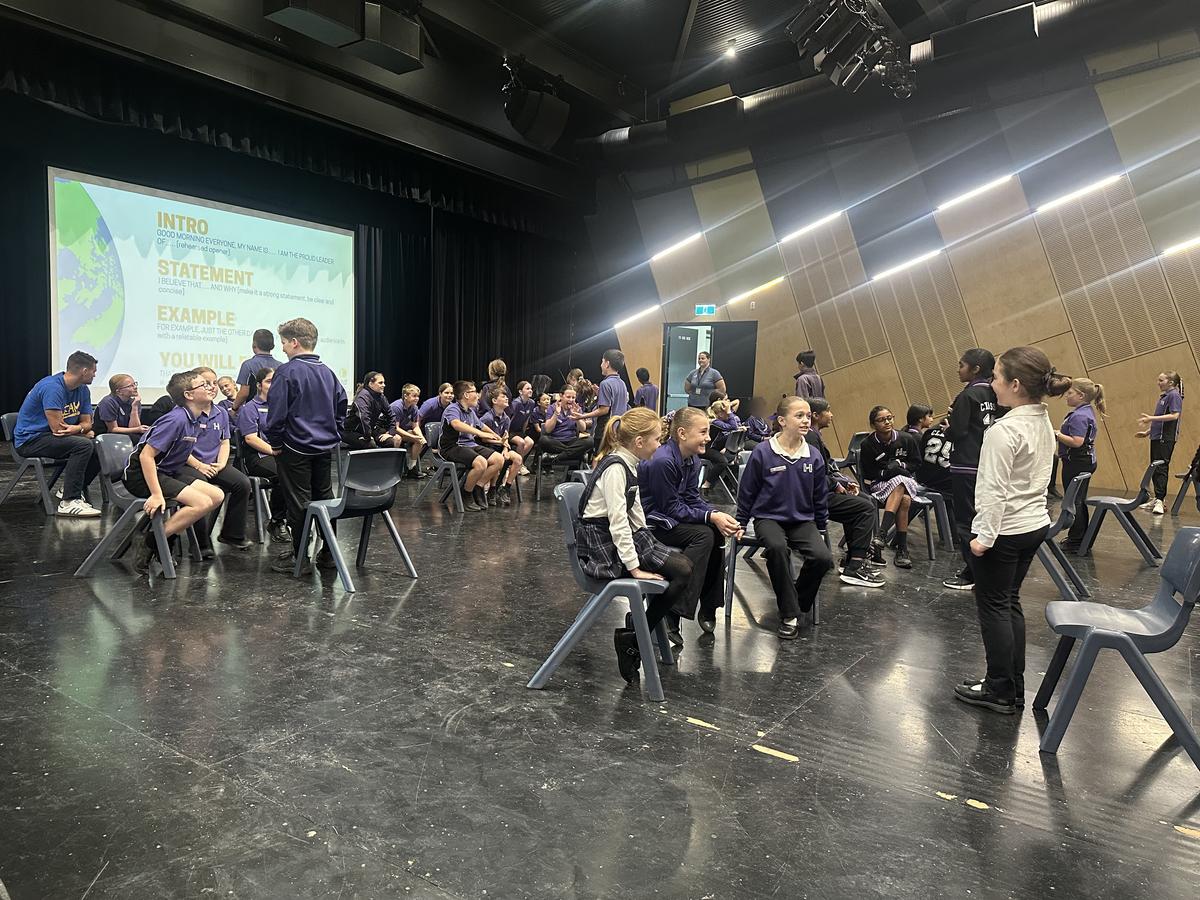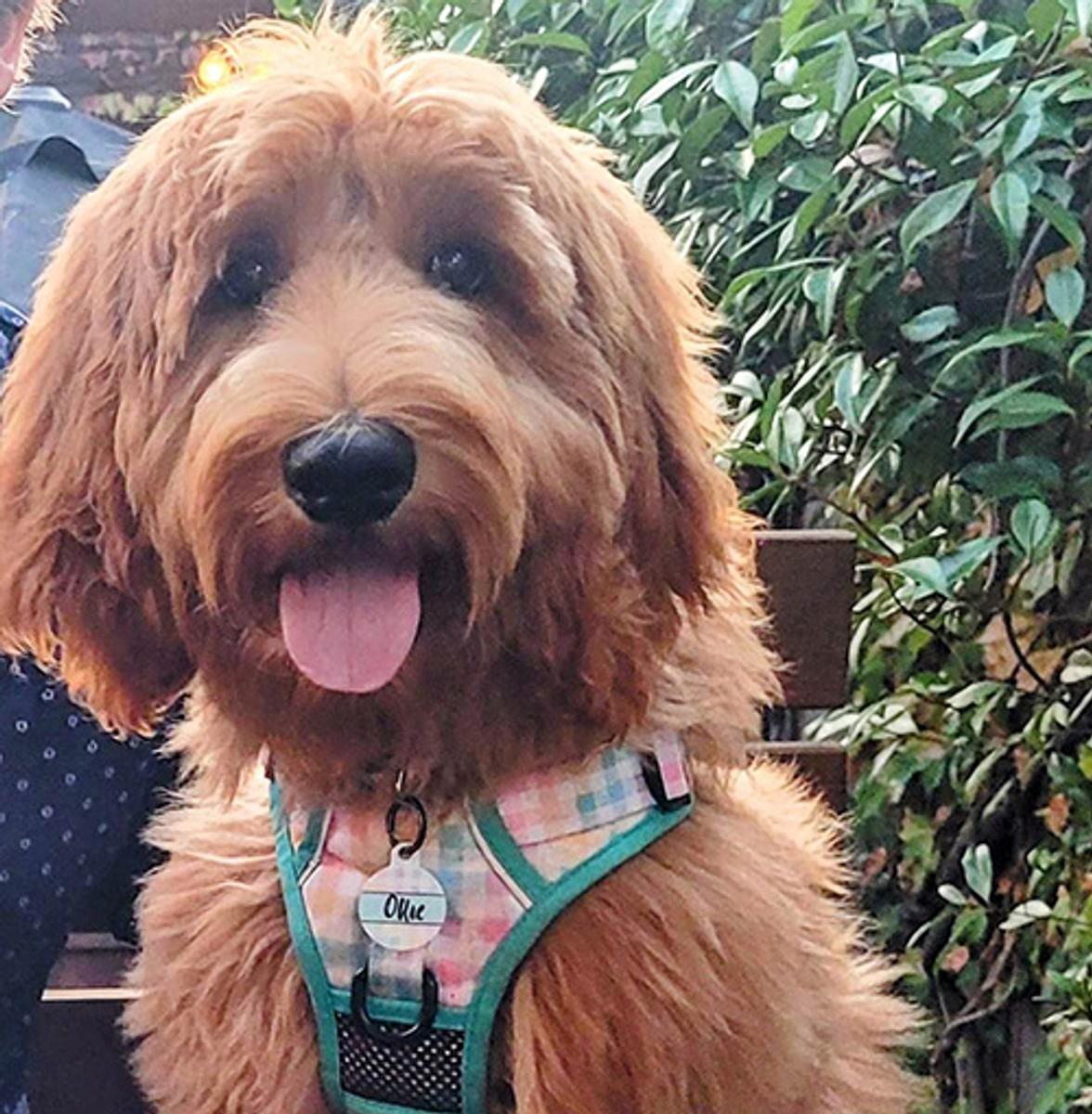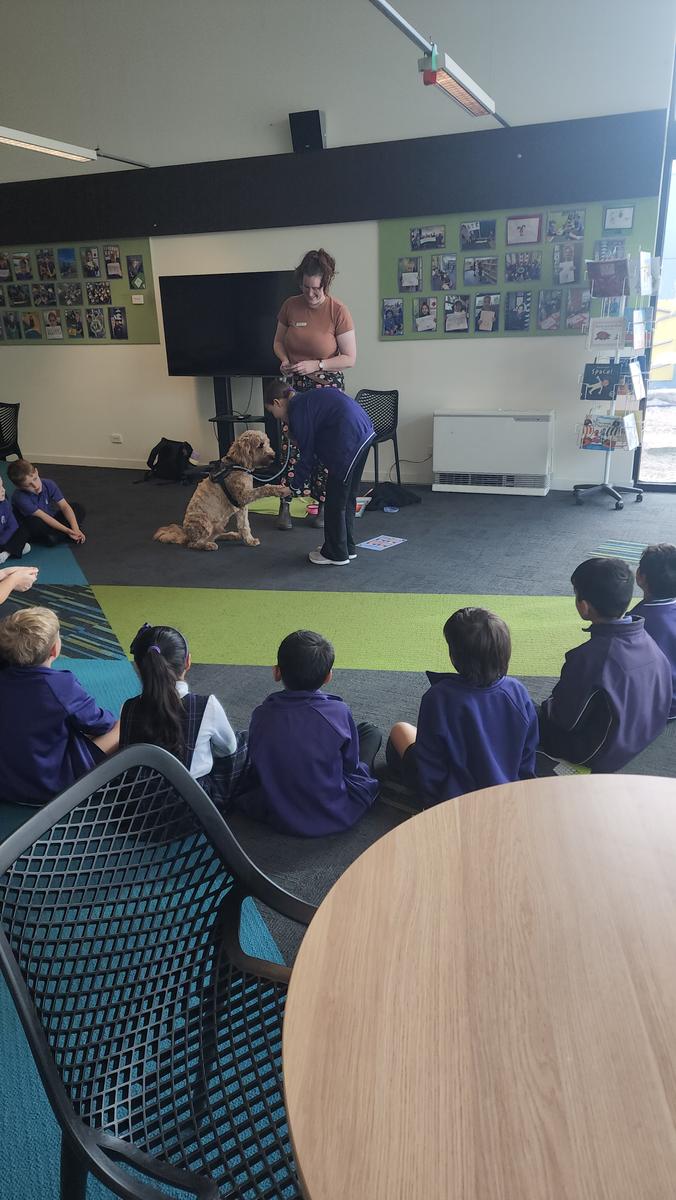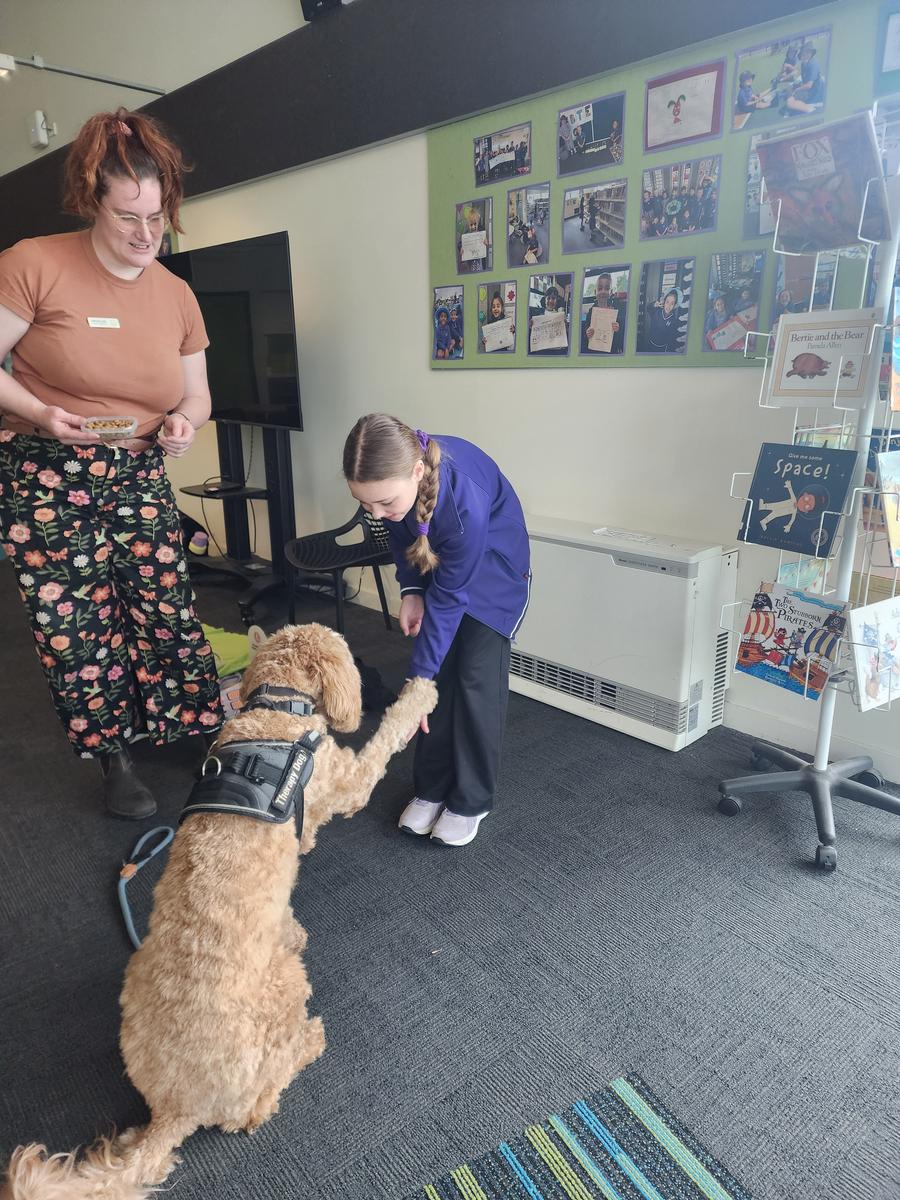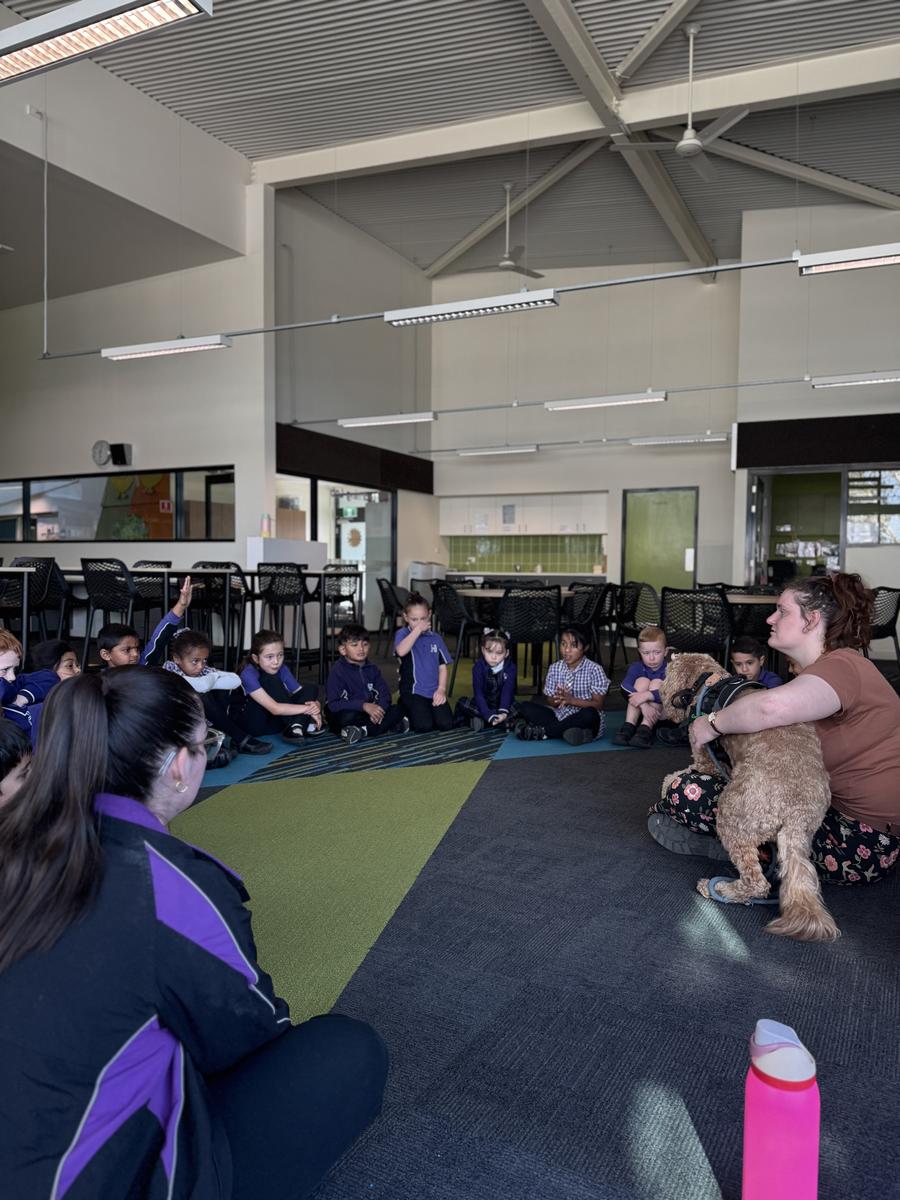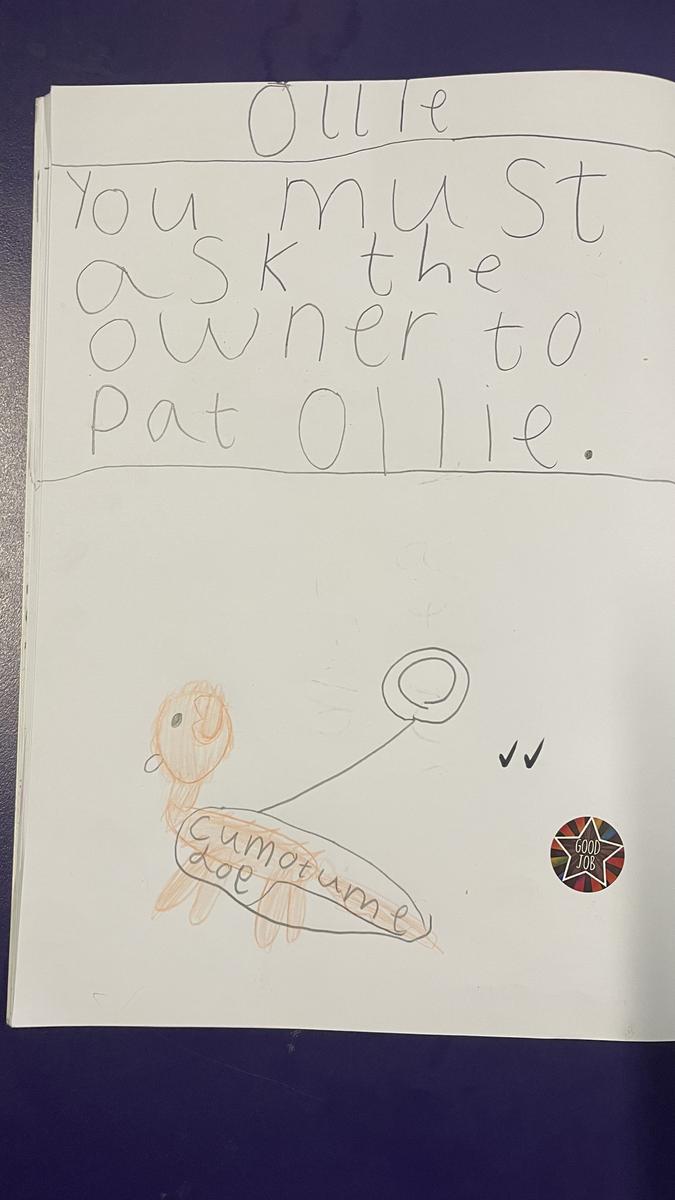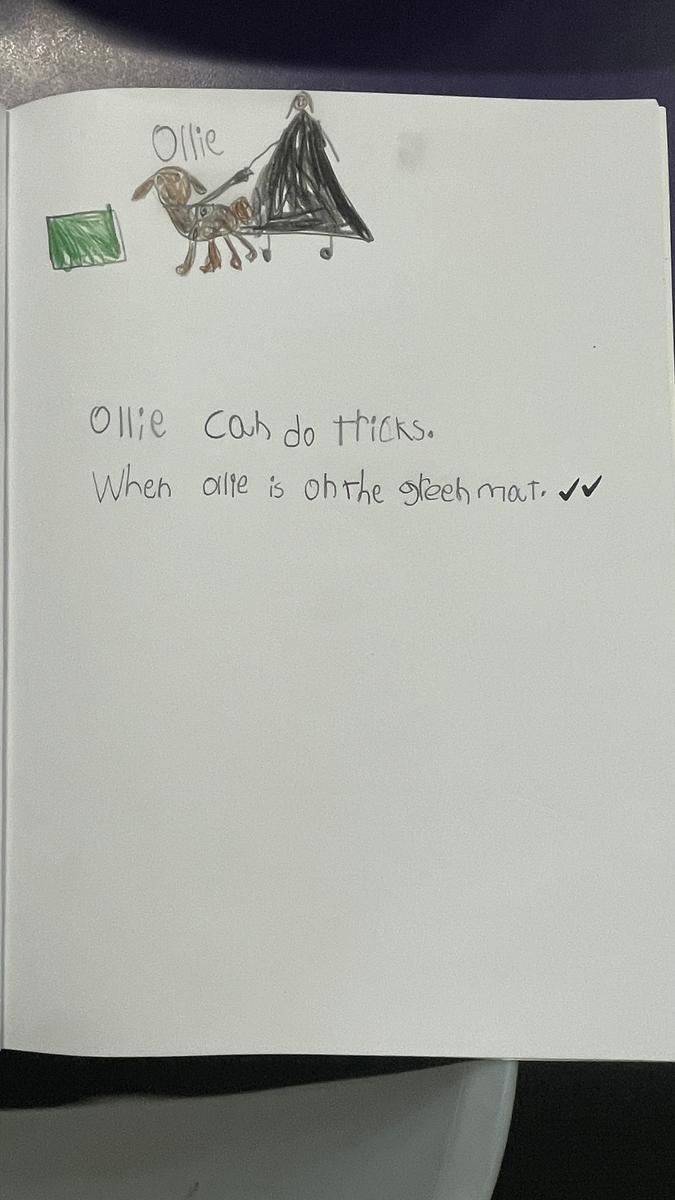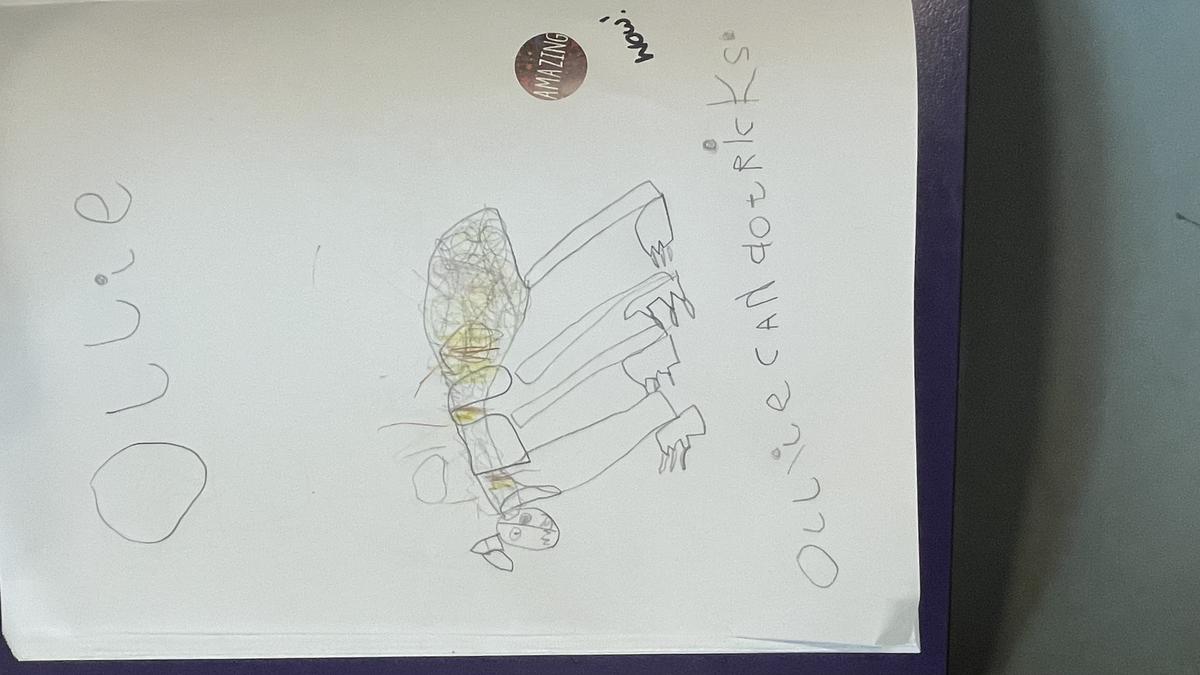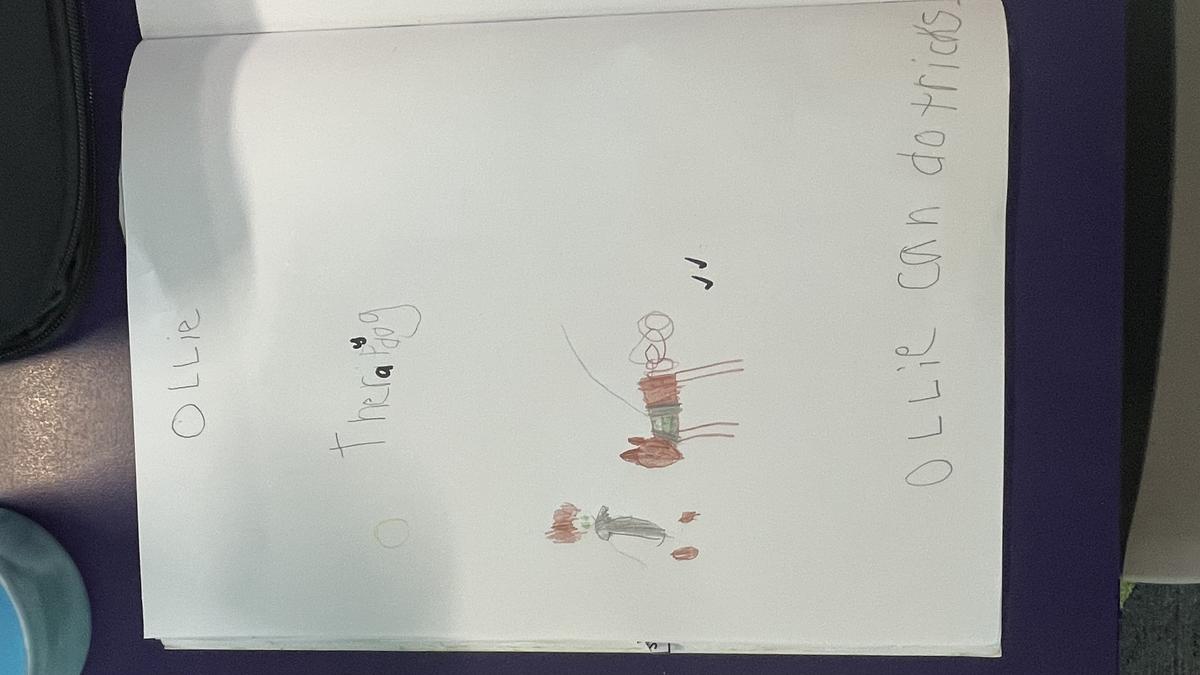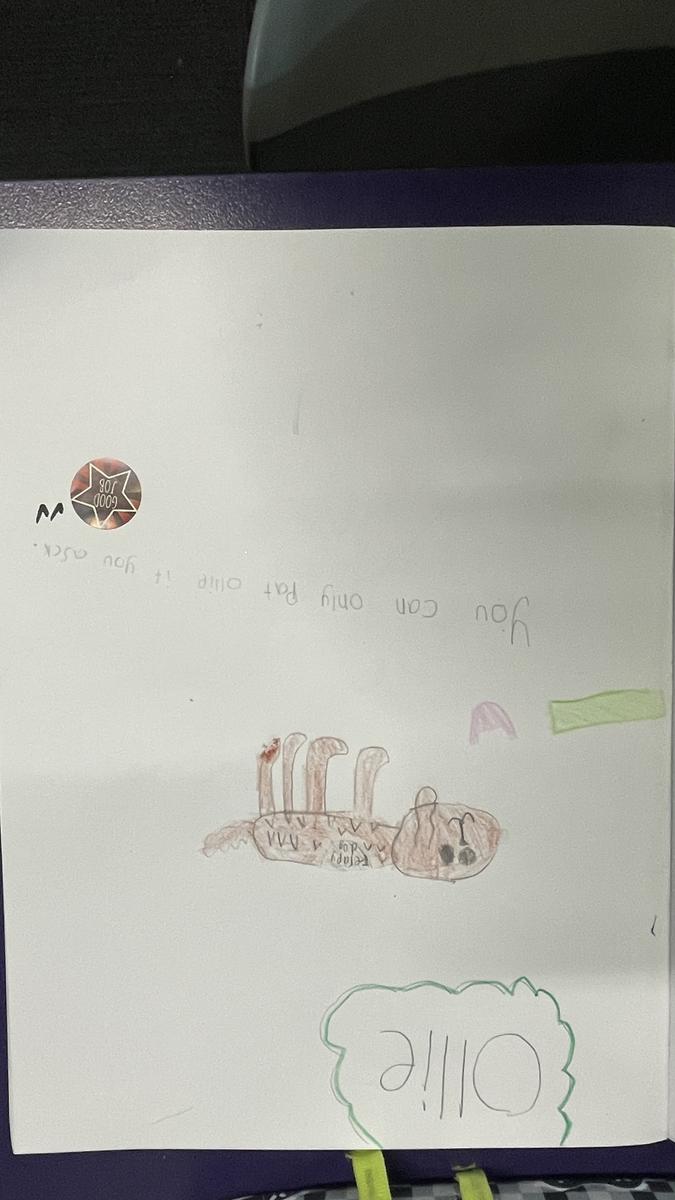In Our Classrooms
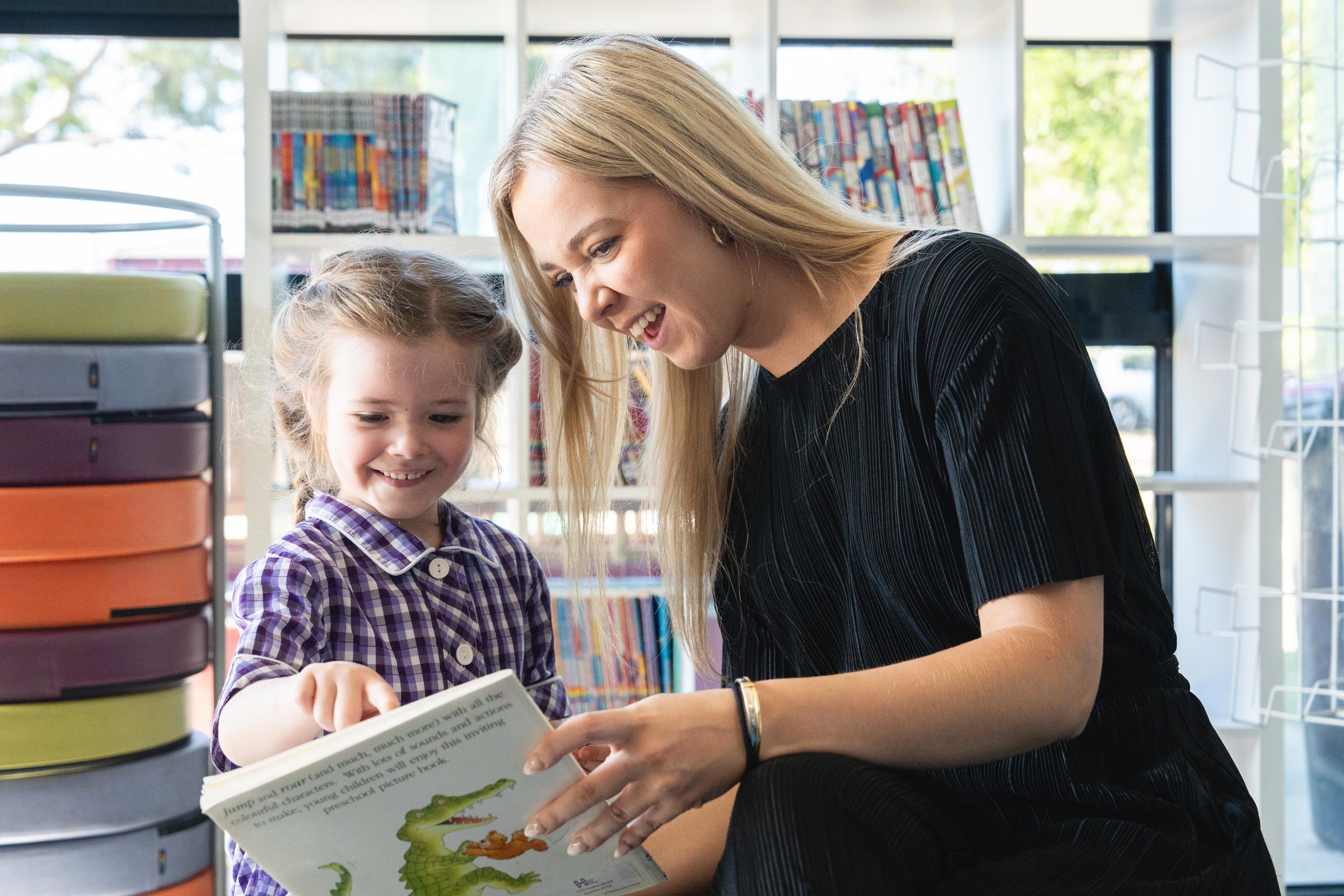
yLead Program
Last week on Thursday, everyone in the Leadership Academy for Primary Years attended the yLead Program. The yLead Program is a collaborative leadership event that helps us learn how to be better leaders at school and in our community.
We played fun games, worked in teams, and learned about the importance of listening, including others and staying positive. One of my favourite parts was learning how to speak confidently in front of big crowds and how small actions can make a big difference.
It was a great day, and we all came home that day feeling more confident and ready to be strong leaders. Thank you to the teachers and leaders who organised the event, we learned a lot and had so much fun!
Thank you!
By Scarlett R and Isabel T
Canine Comprehension
On Thursdays, we’ve been very fortunate to have Ollie from Canine Comprehension and his owner, Maddy, visit our students. Over the past two weeks, Ollie has met our Prep to Year 2 students, delighting them with his tricks and enjoying plenty of pats.
This week, our Year 1 students had a special session with Ollie, where they learned about dog safety and got to know all about him. Following the session, students completed a writing task to reflect on what they had learned.
A big thank you to our student helpers, Dane and Kaitlyn and Mrs R and Mrs B for making the last 2 weeks such a success! Ollie and Maddy are looking forward to meeting our other year levels over the coming weeks.
PEP Program
This term in our Personal Enrichment Program, all Primary Years students have been learning about 'Positive Coping'. As students grow and develop, they all will encounter situations where they feel worried, nervous and sometimes even scared. Individuals deal with the demands on them by drawing on a range of coping strategies. Some strategies are more productive than others. Helping students to learn a range of positive coping skills and allowing them to develop and practise them will enable them to cope more successfully with future changes and challenges.
Resilience research shows that the use of positive self-talk is associated with greater persistence in the face of challenge, whereas negative self-talk is associated with higher levels of distress, depression and anxiety. Research studies have demonstrated that those who use positive self-talk about how they will approach and manage challenges
are more likely to succeed.
Negative self-talk includes over-personalising adversity, excessive self-blame, and exaggerating the likely duration and impact of adversity or failure. It includes focusing on what is wrong and ignoring what is right. Positive self-talk includes a more realistic appraisal of capacity, circumstances and effort. It includes acknowledging and being grateful for the positives, recognising personal strengths and positive intentions, and realistic attribution of responsibility. Positive self-talk can be learnt or strengthened through practice.
Students will learn about positive coping through games and class discussions. They will focus on using positive self-talk in games and explore cheering up and calming down strategies. Parents can speak to their children about what positive coping strategies they use when faced with challenges and what strategies students have been learning in the classroom.
Year 6 Update
Year 6 Update – Learning, Leadership and Lots of Action!
It’s been a busy and exciting time in Year 6! Our students have been diving deep into a range of rich learning experiences across all areas of the curriculum.
In Curiosity, students have been exploring the three levels of government — local, state, and federal — and the important roles they play in our lives. They’ve been learning how decisions are made, how laws are passed, and why active participation in our democracy matters.
In Reading and Writing, students have been focusing on persuasive texts, identifying a variety of persuasive devices and techniques used by authors to influence their audience. They’ve also been crafting their own persuasive pieces, working hard to develop strong arguments, use emotive language, and structure their writing effectively.
In Mathematics, our focus has been on measurement, with students exploring concepts such as area, perimeter, volume and converting units of measure. They’ve been applying these skills in real-world contexts and problem-solving tasks.
Beyond the classroom, Year 6 students have continued to enjoy their weekly sports sessions, showing great teamwork and cooperation. We’re proud of the enthusiasm, effort, and leadership our Year 6 students are showing as they embrace all that this important year has to offer.
Well done, Year 6!

